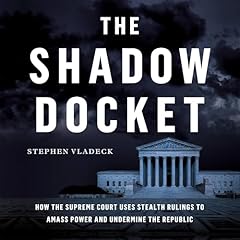
Burning Down the House
How Libertarian Philosophy Was Corrupted by Delusion and Greed
No se pudo agregar al carrito
Add to Cart failed.
Error al Agregar a Lista de Deseos.
Error al eliminar de la lista de deseos.
Error al añadir a tu biblioteca
Error al seguir el podcast
Error al dejar de seguir el podcast
Obtén 3 meses por US$0.99 al mes
 Exclusivo para miembros Prime: ¿Nuevo en Audible? Obtén 2 audiolibros gratis con tu prueba.
Exclusivo para miembros Prime: ¿Nuevo en Audible? Obtén 2 audiolibros gratis con tu prueba.
Compra ahora por $21.00
-
Narrado por:
-
Richard Ferrone
-
De:
-
Andrew Koppelman
A lively history of American libertarianism and its decay into dangerous fantasy.
In 2010 in South Fulton, Tennessee, each household paid the local fire department a yearly fee of $75.00. That year, Gene Cranick’s house accidentally caught fire. But the fire department refused to come because Cranick had forgotten to pay his yearly fee, leaving his home in ashes. Observers across the political spectrum agreed―some with horror and some with enthusiasm―that this revealed the true face of libertarianism. But libertarianism did not always require callous indifference to the misfortunes of others.
Modern libertarianism began with Friedrich Hayek’s admirable corrective to the Depression-era vogue for central economic planning. It resisted oppressive state power. It showed how capitalism could improve life for everyone. Yet today, it’s a toxic blend of anarchism, disdain for the weak, and rationalization for environmental catastrophe. Libertarians today accept new, radical arguments―which crumble under scrutiny―that justify dishonest business practices and COVID deniers who refuse to wear masks in the name of “freedom.”
Andrew Koppelman’s book traces libertarianism’s evolution from Hayek’s moderate pro-market ideas to the romantic fabulism of Murray Rothbard, Robert Nozick, and Ayn Rand, and Charles Koch’s promotion of climate change denial. Burning Down the House is the definitive history of an ideological movement that has reshaped American politics.
©2022 Andrew Koppelman (P)2022 Blackstone PublishingLos oyentes también disfrutaron:




















thank you it's what I needed
Se ha producido un error. Vuelve a intentarlo dentro de unos minutos.
Every US citizen should read or listen to this
Se ha producido un error. Vuelve a intentarlo dentro de unos minutos.
Fair.
Se ha producido un error. Vuelve a intentarlo dentro de unos minutos.


